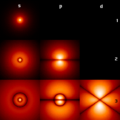
About that Aeon article noted here earlier today, in “Ways forward for quantum physics,” Sheldon read Adrian Kent’s well-written article and noticed something, as he writes to say,
He mentions 4 explanations of QM: Copenhagen (Bohr), Many-Worlds (Everett), Collapse (4 names), & Pilot-Wave (Bohm) and then says all of them don’t work, just as Einstein had predicted in his 1935 EPR paper. BTW, the Einstein/Newton metaphysical view that preceded QM is often called “naive realism” which assumes the real stuff of nature is point-like atoms.
He actually lists a 5th explanation that he immediately dismisses. It’s the Wigner or “observer” approach to QM, that suggests it literally takes a mind to make sense of QM. Why does he dismiss it? Here’s his argument:
Of course, this final observation will never happen. By definition, no one is sitting outside the universe waiting to observe the final outcome at the end of time. And even if the idea of observers waiting outside the universe made sense – which it doesn’t – on this view their final observations still wouldn’t allow them to say anything about what happened between the Big Bang and the end of time.
I may be reading too much into it, but it’s not the observation that troubles him, it’s the observer.
“If we cannot get a coherent story about physical reality from the Copenhagen interpretation of quantum theory and we cannot get a scientifically adequate one from many-worlds theory, where do we turn? We could, as some physicists suggest, simply give up on the hope of finding any description of an objective external reality. But it is very hard to see how to do this without also giving up on science. The hypothesis that our universe began from something like a Big Bang, our account of the evolution of galaxies and stars, the formation of the elements and of planets and all of chemistry, biology, physics, archaeology, palaeontology and indeed human history – all rely on propositions about real observer-independent facts and events.”
He feels that reality should be “objective” which is to say “observer-independent.”
But should it? Why?
Over to you, readers.
See also: Science Fictions
Follow UD News at Twitter!